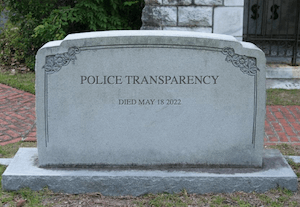WILKES-BARRE, LUZERNE COUNTY (WBRE/WYOU) — On Monday, the Supreme Court began a case considering whether cities can punish people experiencing homelessness for sleeping outside when they have nowhere else to go.
Homelessness has risen 12 percent nationally, and it's also on the rise in parts of Luzerne County, according to experts.
The City of Wilkes-Barre says they've seen an increase in the homeless population over the past six months, with encampments popping up across the area.
The largest exists behind Kirby Park near the Susquehanna River.
The current case before the Supreme Court will determine if cities can criminalize people without homes for sleeping outside when they have nowhere to go.
If the Supreme Court votes yes, one local homeless outreach organization says this won't provide solutions to the growing problem.
A case before the Supreme Court could change the way cities handle people experiencing homelessness and living outdoors.
The court heard oral arguments Monday, with plaintiffs citing that a ban when the homeless have nowhere else to go would be considered cruel and unusual punishment, violating the Eighth Amendment.
"If they don't find that to be cruel and unusual punishment then local governments can handle the problem as they see fit, and people who are experiencing unsheltered homelessness can be legally penalized for having that experience," said Crystal Kotlowski, Senior Director of the NEPA chapter of Volunteers of America Pennsylvania.
The organization operates a women's shelter, as well as street outreach and case management for the local unsheltered homeless population.
NEPA MMA reopening in Kingston after fire
She says their programs have seen a 22 percent increase in people needing their services.
"There is a significant lack of affordable housing for low-income renters," Kotlowski said.
Kotlowksi says the ratio is around 40 units to every 100 people.
She says that the ruling could also be problematic because there is not a wide enough variety of shelters to accommodate.
The homeless population and shelters are almost always at capacity.
"In Luzerne County, we have a women's shelter, we have a men's shelter, there's a co-ed shelter in Hazleton, but there are only transitional programs for families," Kotlowksi continued.
Meaning that homeless families may have nowhere to go.
The Supreme Court may not have a decision for months. So, in the meantime, the city is weighing its options.
Wilkes-Barre City Administrator Charles D. McCormick says the mayor will try to do what's in the best interest of the people living in the encampments, and the citizens of the city of Wilkes-Barre.
"The city's position is that the encampments are a poor choice by the homeless to provide for their own care and safety," McCormick said.
Advocates argue conversations need to be had.
"What are actual solutions to the affordable housing crisis? To the lack of shelter beds? And to make sure that we have these safety nets in place in order to then say there's no need for you," Kotlowski asked.
To experience unsheltered homelessness because there is a resource for you."
The city of Wilkes-Barre has allocated $300,000 for the Keystone Mission Innovation Center which offers daytime resources for people experiencing homelessness.
Again, the Supreme Court likely won't decide on the case until June.
